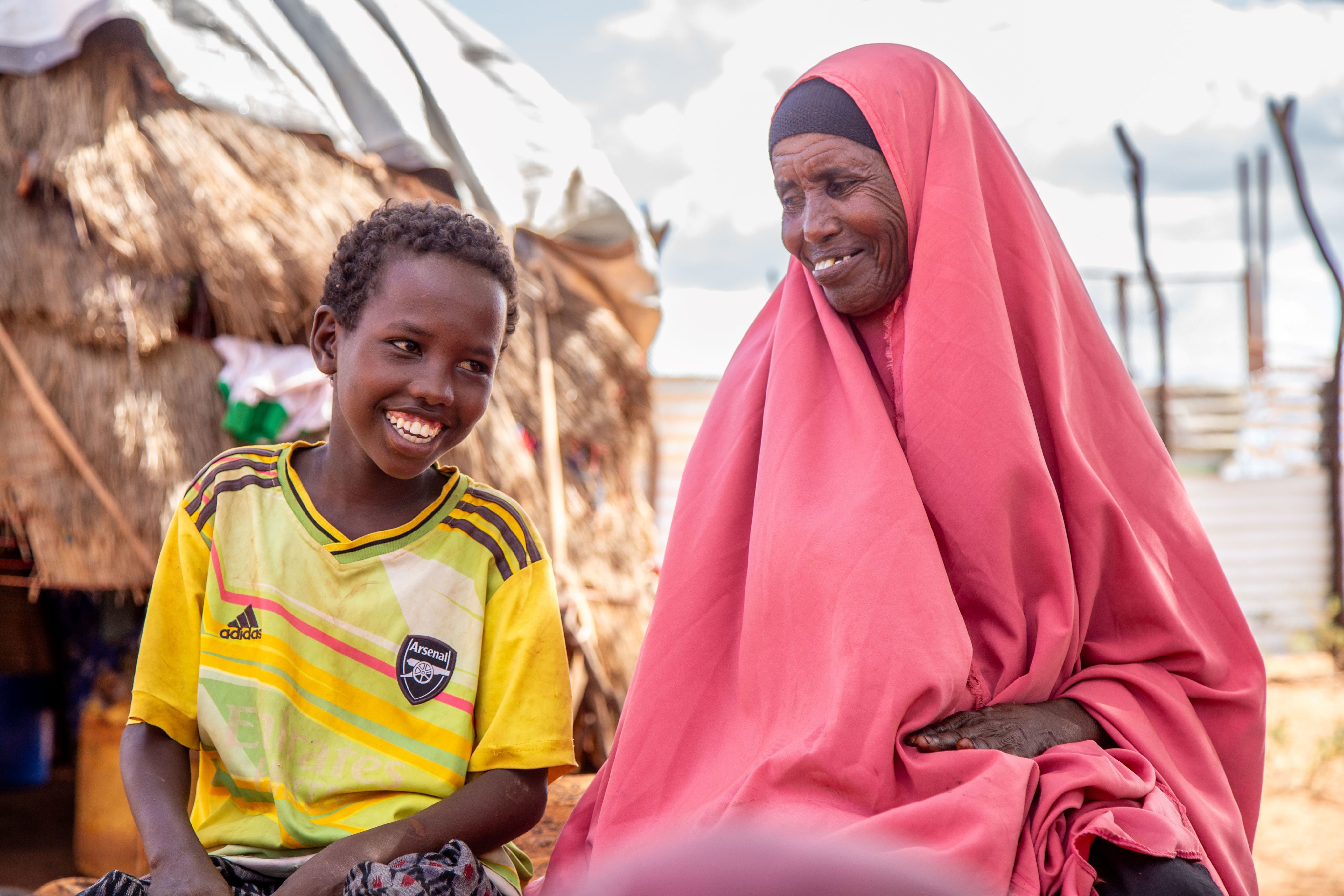Abdifatah and his grandmother in Somalia

13-year-old Abdifatah has spent most of his life in Somalia in a camp for displaced families.
“We used to have livestock that we milked, and we had a productive farm,” Abdifatah’s grandma remembers. “An eight-year drought happened, and we depleted all of our savings. All of our livestock died. We abandoned our homes and came to Dollow. It took us two nights to reach here. Four nights later, the village administration and NGOs came to us. They began providing us with financial assistance.”
“After receiving the aid money, we and the children were able to eat.” Abdifatah’s grandma explains. “We regained our energy, and the feeling of hunger lifted. We used the money to purchase rice, flour, pasta, and oil. The children would have Anjero(Somali bread) with sauce for breakfast. They ate lunch at school and I prepared dinner for them at home. We lived a good life. [But then] the aid money stopped. Since then, we have been merely surviving.
“When we had money, we would eat three meals a day: breakfast, lunch, and dinner,” Abdifatah remembers. “Now there’s not enough food in the house and we only ate one meal a day.”
Abdifatah’s grandmother explains, “When the aid money stopped, hunger set in, and the children fell ill. They couldn't endure the hunger and began vomiting. We began gathering wood to sell to support the children. Despite our efforts, it wasn't sufficient, and the hunger intensified.”

“Abdifatah and the other children continue to attend school and haven't stopped going. However, their memory has declined and hunger has affected them. They aren't studying as diligently as they used to.”
“I didn't have much energy to go to school and play football. Even concentration in the class is a problem because of hunger,” Abdifatah explains. “All the other kids felt hungry too. There’s a big difference between some of my friends who are in school and those that are not, those in school have discipline and hope for the future. That’s why my grandmother encourages us to go.”
His grandma adds, “The hunger is not only affecting my family but also all the IDP camp. Children no longer eat a nutritious breakfast in the morning. No one is receiving any aid money. All the camp residents are suffering from hunger, fatigue…everyone in the camp is struggling to survive.”
“There is a type of hunger that can drive the person to madness,” she finishes, worriedly.

In Somalia in 2022, World Vision and WFP worked together to avert famine, providing 100,000 families with urgently needed food and cash assistance at the height of the drought. Today donor fatigue has meant 70% cuts. World Vision staff are continuing to provide a small amount of food to families on a rotational basis, with 30,000 families receiving food for six months at a time, as well as working with BHA to provide clean water and latrines for everyone in the camp to limit the spread of diseases that could prove deadly for malnourished children.
For more on how ration cuts are affecting children and their families, please read World Vision’s new report here.
